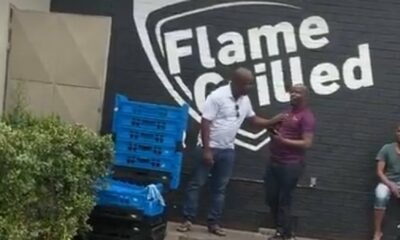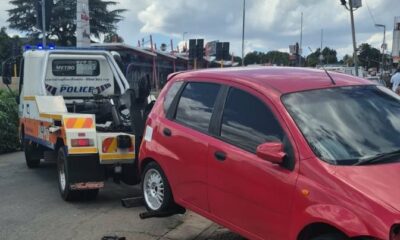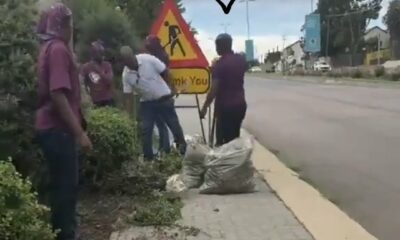News
Tshwane Faces Setback in Wolwespruit Wetland Evictions as Squatters Reappear

Despite eviction efforts, squatters reappear in Pretoria’s Wolwespruit wetland
What was meant to be the end of a decades-long environmental crisis in eastern Pretoria has turned into yet another chapter in the City of Tshwane’s struggle to relocate illegal settlers from the sensitive Wolwespruit wetland.
Earlier this month, metro authorities successfully removed more than 300 informal settlers from the area, raising hopes among residents of nearby suburbs like Wingate Park. But according to Ward 83 councillor Andrew Lesch, around 30 individuals have since returned and begun erecting makeshift structures once again many along Solomon Mahlangu and Nossob streets.
“The metro police were quick to act on Monday and dismantled the structures. The department has been ordered to resolve the matter urgently,” Lesch said.
Decades of frustration over environmental damage
The Wolwespruit wetland—an ecologically protected zone, has long suffered from illegal dumping, open fires, and unregulated construction. Local residents, including Allison Hayward from Wingate Park, say the illegal occupation brought years of smoke, noise, and waste pollution.
“We finally saw action after years of pressure on city officials, but now 30 more individuals have resurfaced and are camping along pavements,” said Hayward. “They’ve built makeshift shacks, started open fires, and have no sanitation, which puts both them and the community at risk.”
ActionSA and AfriForum weigh in
ActionSA Tshwane’s caucus spokesperson, Henriette Frohlich, said the city made substantial progress by identifying new relocation sites above the flood line and ensuring some squatters were moved to Pienaarspoort. She confirmed that by the time eviction notices were issued in 2021, the settlement included 192 households, 110 South African, 67 Basotho, and 15 Zimbabwean.
While 70 verified South Africans were relocated, others have either refused to move or weren’t accounted for in the original relocation plan. A court’s initial dismissal of the city’s urgent eviction application also slowed progress.
AfriForum’s northern region head of safety, Llewellynn Hemmens, warned the city not to repeat its mistakes from other Pretoria hotspots like the Plastic View settlement, where failure to act promptly led to an ever-growing informal community.
Internal disputes stall resettlement
A key point of frustration is the lack of clarity within Tshwane’s departments over who is responsible for the remaining displaced people. “The Human Settlements Department must take accountability and complete the relocation process, especially for the additional 30 South Africans who were overlooked,” Hayward said.
Residents now fear a repeat of the Wolwespruit crisis if coordination doesn’t improve. With illegal recycling, cable theft, and environmental damage already on the rise, pressure is mounting for Tshwane to enforce eviction orders decisively while ensuring humane relocation of vulnerable people.
{Source: The Citizen}
Follow Joburg ETC on Facebook, Twitter , TikTok and Instagram
For more News in Johannesburg, visit joburgetc.com



























